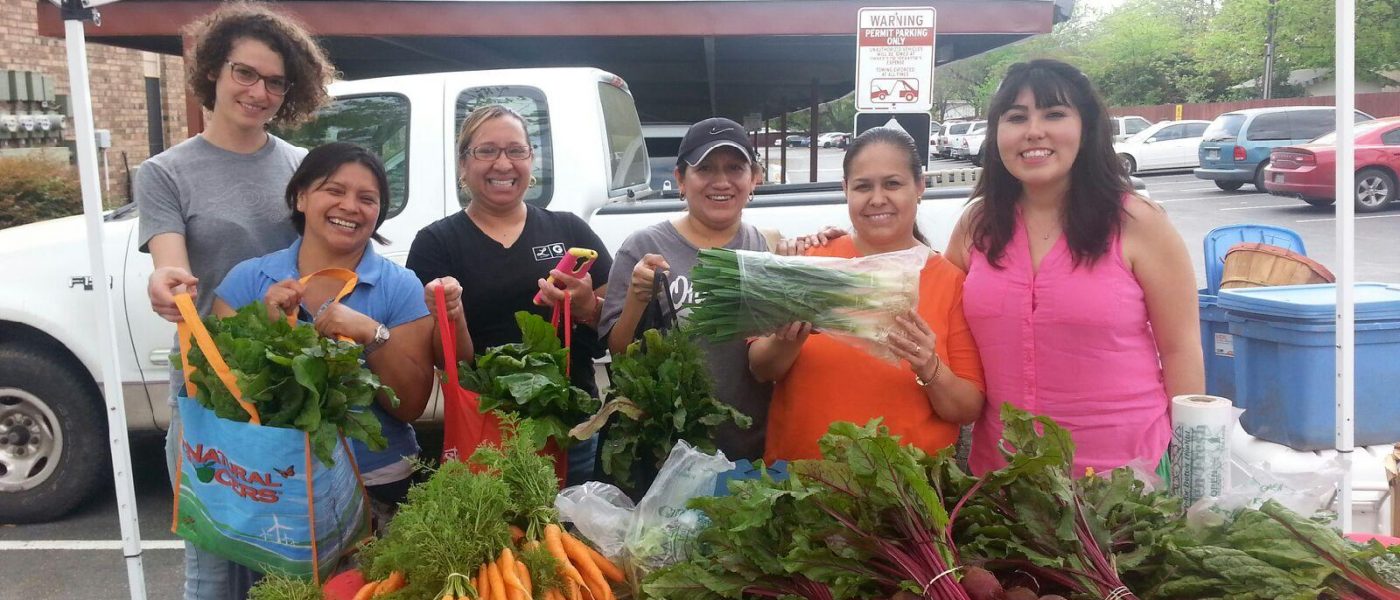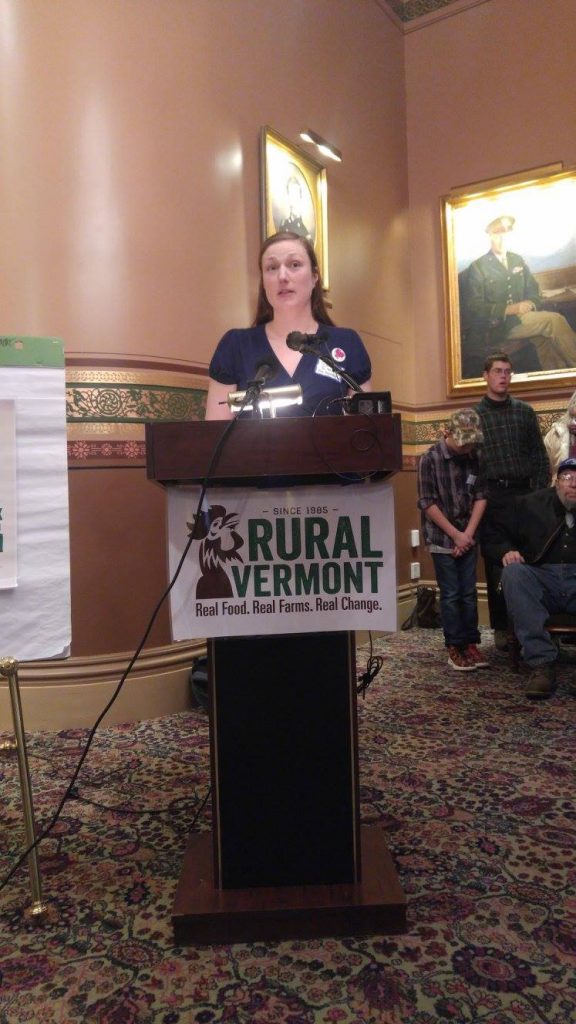These past few weeks, I have been reviewing the amazing work our grantees have accomplished during the first six months of their yearlong Farm Aid grant. They are all involved in the important fight to improve America’s food system. I choose the three below to highlight because their stories are too exciting not to be shared! Again, these are their own stories that I have edited. I hope they energize you as much as they have me.
Click here to read my first post about our current grantees.
The Carrot Project, in Somerville MA, helps small farms create sturdy foundations for themselves. They facilitate access to financing and business support so that small farm and food businesses can grow into thriving, enduring enterprises. They used their Farm Aid grant to provide business assistance to beginning farmers.
Laura Meister, of Farm Girl Farm, started farming in the Berkshires in 2004. Like many beginning farmers, she was thrilled to have fresh produce for her CSA customers each week. “The focus,” she recalls, “was very much on growing the food and getting it to the people who had given us money ahead of time. We were happy that we were able to do that and thought that, somehow, that was proof of a financial success.”
But getting the farm business through the winter proved to be a financial challenge. Laura recognized the need for keeping records and approached The Carrot Project for a preliminary consultation
The Carrot Project connected Laura with business advisor Julia Shanks to address gaps in her business knowledge. They worked together to create systems that would equip Laura to use her business numbers more efficiently. As a team, Julia and Laura evaluated opportunities to reduce operating expenses and increase revenue at Farm Girl Farm. With this information, she now can make informed business decisions to plan the growing season, compare projected and actual income/expenses during the growing season, and to reduce the debt she incurred in her early years of farming.
“Farmers should not underestimate the significance of the business side of farming. Your numbers are one of the most important crops to attend to. A tremendous number of things are out of a farmer’s control, but finances doesn’t have to be one of those things.”-Laura
Business assistance received through The Carrot Project helped Laura to improve cash flow, obtain working capital from the USDA‐Farm Services Agency (FSA) microloan program, lease a favorable farm location, and stay current with yearly expenses while paying down existing debt. Advice from The Carrot Project and other sources “has helped me to begin to take control of the financial destiny of my farm,” says Laura. “Financial change bears quick and longer‐growing fruits!”
Rural Vermont, in Montpelier Vermont, is an organization dedicated to building communities that embrace regenerative agriculture. Their Farm Aid grant went to supporting three Small Farm Advocacy Days, which connected small-scale farmers with legislators at the Vermont State House, where they discussed pressing policy issues.
In 2013, Stephanie began building her own homestead and raw milk dairy. She bought a badly degraded northern Vermont farm and began bringing it back to life. Now she’s also an Organic Dairy Certification Specialist for NOFA-VT. She continues to struggle with the economics of being a small-scale farmer. In spite of the challenges of also being a new mom, Stephanie responded to Rural Vermont’s call for farmers to attend Small Farm Action Days because she knew that telling her story to legislators would be an important contribution to their understanding of the values that guide her farming practices.
Here are some of Stephanie’s reflections on her experience with Small Farm Action Days:
“Because I don’t have the financial resources to support Rural Vermont with much money, signing up to come to the State House and talk with legislators was a way that I could contribute my time and skills to support Rural Vermont’s work on behalf of small-scale farmers like me.”
“I was very discouraged by my interactions with legislators in the past. They didn’t know me and didn’t take me seriously. Coming to the State House this winter changed that dynamic in a big way. I wasn’t alone; Rural Vermont provided training and support; and helped me get time to testify before the Ag Committees and to meet with my legislators one-on-one.”
“By attending all three events, I built relationships and held my legislator accountable for things he said he would do in between my visits with him. I realized that my voice was one that the policymakers needed to hear. Most of them really don’t know much about farming, especially the kind of labor and knowledge-intensive practices we use like rotational grazing to build the health of our soils and pastures. The issues we are facing in Vermont around water quality are huge and small-scale regenerative farmers have a crucial role to play IF we can create regulations that treat them fairly. Networking with other young farmers is so valuable to me and helped me forge strong connections with other women raw milk dairy farmers – they are my tribe!”
The Sustainable Food Center, in Austin Texas, cultivates a healthy community by strengthening the local food system and improving access to nutritious, affordable food. With their grant from Farm Aid, they created the Farm to Family Program to improve access to fresh produce in low-income, food-insecure neighborhoods.
Farmshare Austin is a 501c3 nonprofit organization that is accelerating organic farming knowledge to increase organic food access in Central Texas. They offer on-the-farm education and training to aspiring farmers, facilitate research for organic and sustainable farming practices, preserve land and natural resources needed for farming, and create innovative giving programs that put organic food on the tables of those who are most food insecure in our community. Farmshare Austin has been a critical partner to Sustainable Food Center in launching weekly neighborhood farm stands. Lorig Hawkins, Farmshare Austin’s Program Manager, praises the convenience, affordability, and quality of ingredients as a motivating factor for families to support local agriculture through neighborhood farm stands. “Being able to be there at times where it’s convenient for people, usually when they’re picking up their kids from school or coming home from work, to have access to the food at those moments is really important, and just a really great way to engage communities,” she says.
One such stand exists at Cunningham Elementary. This particular school is located in a neighborhood in South Austin with relatively low access to fresh fruits and vegetables and a large Latino population. As a central location for their families, the school became a logical site to launch an initiative to make fresh, affordable produce available to parents and neighborhood residents. Cunningham Farm Stand was born and has been overwhelmingly successful.
Visit our virtual Grant Quilt to view how Farm Aid threads together a vibrant network of family farm organizations across the country. Meet all of Farm Aid's current grantees.






